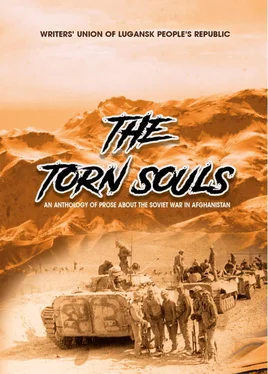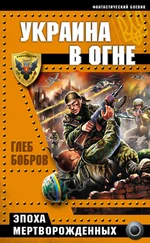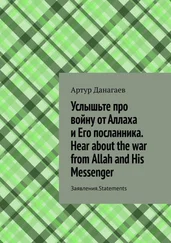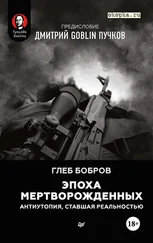Writers’ Union of Lugansk People’s Republic
THE TORN SOULS
AN ANTHOLOGY OF PROSE ABOUT THE SOVIET WAR IN AFGHANISTAN
(1979–1989)
Editor’s and Translator’s Foreword
Dear Reader,
If you read these words, it means that you hold the book “Torn Souls”.
Before you turn the first page, I want to warn you — this book is a rather out of the ordinary collection of stories based on memoirs of the direct participants of Soviet-Afghanistan War (1979–1989).
This book is not for the average person who prefers to read a detective story with “soap opera” murders during their leisure time, although you will read about more than enough murders in this book.
This book is not for lovers of horror or thrillers, although described horrors in this book, will make your blood freeze and hairs stand on end; and cannot be compatible even with the most violent fantasy.
This book is also not for lovers of the romantic genre, although the whole book is permeated with imbued feeling of the highest sense of love for human being in any form and any manifestations.
This book is for very special people. It is written for those who are not stuck in monotony; for those, who are not afraid to be honest with themselves and who can take the burden of responsibility of others and, regardless of your bleeding soul, will carry the heavy onus to the end.
This is an odd book that raises more questions than answers about the nature of human kind in critical situations.
This book is the honest revelation of those who went through the hell called “Afghanistan”, and who, with their torn souls, maintained their dignity as a man.
I also want to draw you attention, my Reader, that this book is the first attempt ever to translate “Afghani genre” which just very recently landed on the lap of Russian literature, into English.
I hope you find the book to be a thought-provoking and a powerful experience, as I did.
Editor, Irina Vasilenko 
P.S. Doctor of Philosophy Irina Vasilenko lives and works in Melbourne (Australia). She volunteered to face the challenge as Translator and Editor of pilot this project.
Shaynin, Artem Grigorievich was born in 1966, in Moscow. From 1984 to 1986 he served in the 56th Airborne Assault Brigade, located in Afghanistan, Paktia Province, Gardez. After returning to civil life, he graduated from the Lomonosov Moscow State University. Since 2000, Shaynin Artem Grigorievich has worked on television. Currently he is a prominent talk show host and received the TEFI Award for “Best Prime Time Political Talk Show Host”. Shaynin Artem is also a well — known journalist, he is a member of the Writers’ Union of Russia.
December 8, 1984, Nara-Aliheil.
What we waited for since late November eventually happened at last. One gorgeous day — with no exaggeration! — we received our weapons, and marched to a parking lot, where the ready — to-go “darlings” APCs were waiting for us from the very early morning.
A convoy brigade began slowly stretching toward Gardez — and everything around was covered with a bluish stinking smoke. Our tents were getting smaller and smaller with every minute, and very soon they disappeared from out sight.
Goodbye, our odious home! I wish I will not see you for a long time!
After a long and dreary march on the mountain roads, we have reached the mountain named Nara that sheltered one allied garrison of the Afghan army; and I do not think that we have met any other allied Afghan garrisons during our “military” operation until we reached the border with Pakistan. The task of our operation, as being broadly explained, was to deliver food and ammunition to this garrison that was besieged by mujahidins (see “Terminology ad Glossary” — Editor); and to do so we have to endure a long march to Aligal.
Now we know that it was named “military” because the march involves not just our 56st Air Assault Brigade but also many other divisions of the 40th Army, located at different areas of Afghanistan. So, our brigade became involved in this operation because we were controlling the area of Aligal. For those who served the army, no need to explain in detail how massive and complex the tasks were.
However, we were young, and, at that time, we had not accumulated enough military knowledge to realise how hard the operation was, although our training and preparation drills this time were unusually thorough. We went through several trainings exercises across the mountains, shooting ranges, and ran so-called “equipment drills”, in which our equipment has being personally checked in detail: do we have a pair of spare footcloths in our BP (see “Terminology ad Glossary” — Editor) or not. But more significant was the fact that all of these drills were conducted under the special control of the super important inspectors that arrived from a very high-up level of the army, being the Command District of Tashkent.
But no matter how this well-intentioned thoroughness had been applied towards our preparation, all this training gave us nothing but troubles, bringing more problems to us, the young soldiers. Nobody had explained to us how to equip our BP. All drills were based on a formal “that is correct” tick which was an approval of your BP contents if has been packed according to some rules invented by someone with a higher military rank.
Unfortunately, this “someone” has hardly ever been in a fight in the mountain areas. This “someone” could hardly imagine the size of the prescribed BP. Otherwise, many unnecessary things, such as a toothbrush, an under-collar’s spare hemming, and similar sorts of items, would not have been compulsory items on that “correct list”. Of course, nobody took them at the time of military operation. A dental paste? What for? When you are marching across the mountains, every sip of water is as precious as gold…
Accordingly, to satisfy this “correct list”, we have to pack all sorts of things into BP and demonstrate them to a swaggering colonel-examiner. And if — God forbid! — something will be missing in our BP from the prescribed contents, then, no doubt, the company commander will reprimand you on the spot; and then all sorts of nonsense will follow with predictable consequences for a young soldier…
In brief, whilst we were preparing for this military operation, we got so much fed up with all of this nonsense that we could not wait for the real military action.
Eventually, we got what we wanted….
…Near Narai we stopped for two or three days; and every day we were waiting for when we will go into the mountains.
But which one is Narai, amongst these massive peaks that surrounded us, I had no idea. And honestly I did not care. If they told us to stay near the mountain of Narai, this Narai must be nearby… and to tell the truth, they did not tell us about Narai. The name of Narai I accidentally picked up when I overheard a radio conversation. How could I know at that moment that this Narai would be forever imprinted in my memory? It would be like a splinter under my heart for life…
For some reason, Hindu Kush, Panjshir, Black Mountains or some other places with more onerous and impressive military actions, have not made such an impact on my life. Amongst all rich mountain areas of Afghanistan, only Narai will be vividly remembered, engraving its image in my mind forever.
Well, let’s go back to that time, when a relatively flat area between two mountains, which hosted our armoured brigade, was the main focus of my interest.
Читать дальше











